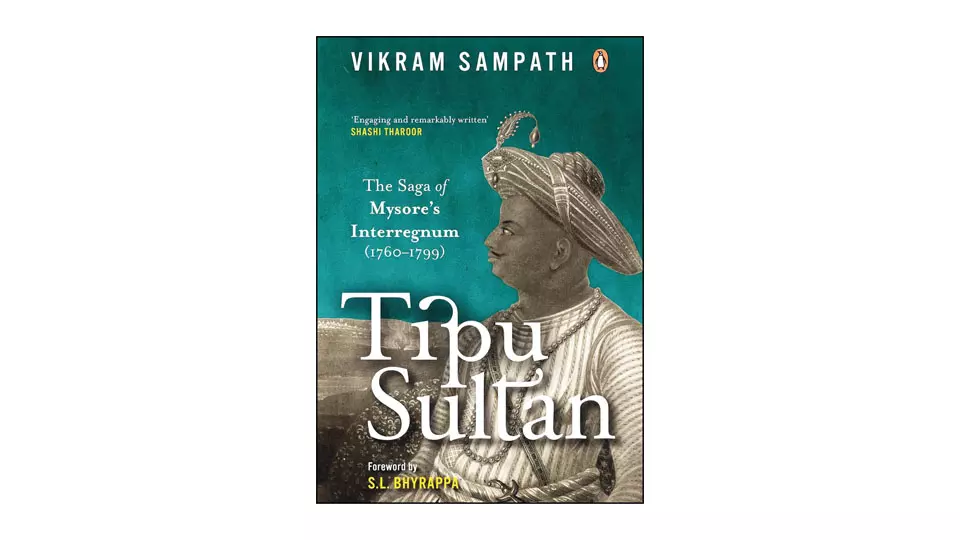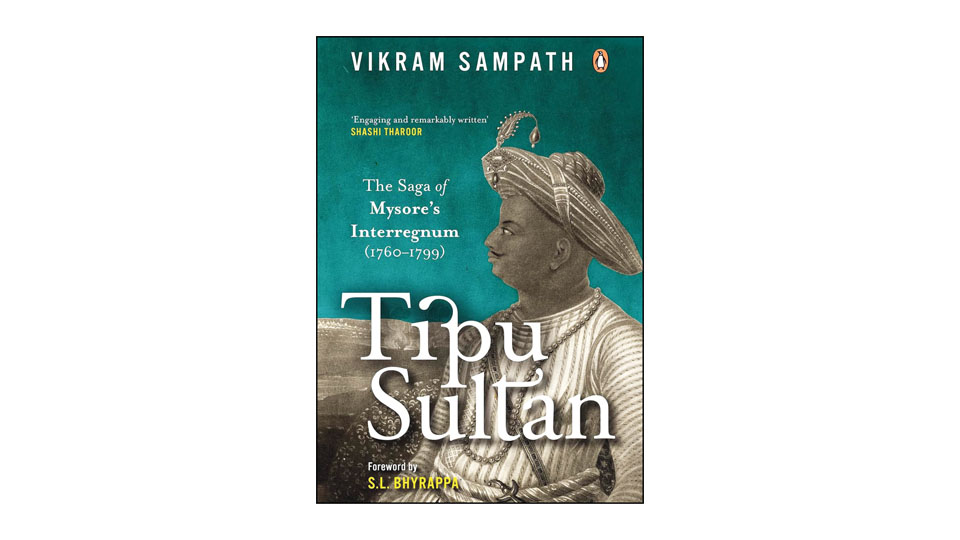
Recently, I spoke at the launch in Delhi of Vikram Sampath’s new magnum opus, Tipu Sultan: The Saga of Mysore’s Interregnum (1760-99), a 900-page biography of this controversial figure. External affairs minister S. Jaishankar, who was the chief guest, spoke well, at a function hosted by Bhaswati Mukherjee, president, India Habitat Centre, in association with the Prabha Khaitan Foundation. The moderator was Lipika Bhushan.
I simultaneously greatly admire Vikram Sampath and envy him. My admiration is based on his remarkable scholarship as a historian, his meticulous research, the quality of his prose, and his attempt at objectivity in spite of his own ideological inclinations often to the contrary. I envy him because of his prolificity, and the amazing speed with which he produces one voluminous book after another. As an author myself, I often joke with him that he gives me a severe inferiority complex!
Vikram has also written a masterly biography of the legendary singer of the gramophone record era, Gauhar Jan, as also an excellent two-volume biography of the great freedom fighter, Veer Savarkar. I quoted from Sampath’s work on Savarkar in my book, The Great Hindu Civilization. While paying tribute to Savarkar’s courage and sacrifices for India’s freedom from British rule, Sampath has not written a panegyric or qaseeda. To quote him: “As the intellectual fountainhead of the ideology of Hindutva, Savarkar is undoubtedly one of the most contentious political thinkers… Accounts of his long and stormy life have oscillated from glorifying hagiographies to reproachful demonisation. The truth, as always, lies somewhere in between (Emphasis mine). I was slowly to discover that Savarkar was a bundle of contradictions and a historian’s enigma.” For someone, like Vikram, who is one of the few truly erudite Hindutva-leaning ideologues, to write this requires not only courage but honesty.
Unfortunately, this kind of honesty is becoming rather rare. Those who blindly idolise Savarkar overlook the fact that he never joined the RSS, was a professed atheist, an uncompromising rationalist who opposed even cow worship and a strong advocate of reform within Hinduism, whose ills, including caste discrimination and gender disparity, he called the Saat Bediyan, or Seven Fetters, that needed to be broken. Actually, Savarkar’s short tract on Hindutva, much quoted by his often-uninformed protagonists today, was written in a specific historical context of the times then, and later, he himself put in perspective what he had advocated. Unfortunately, his uncompromising struggle against bigoted Hindu orthodoxies is hardly ever highlighted.
But Vikram in his majestic biography has the courage to do so. This same historical objectivity informs his book on Tipu Sultan. Tipu has been at the centre of acrimonious controversy in recent times. There are those, including the Congress Party, who see in him a staunch freedom fighter against British rule; others, especially in the BJP and large parts of southern India, see him only as a bigoted Muslim sultan who massacred thousands of Hindus. Both points of view are valid, because as Vikram is the first to admit, history cannot be seen only in black or white polarities. To argue that his anti-colonial credentials are diluted because he was willing to take the help of the French to fight the British, is silly, because there were many Hindu royal families then who also willingly colluded with the British, and it would be wrong to judge them, or their descendants, solely on this account.
Similarly, it cannot be denied that Tipu, in terms of faith, was a bigot, who mercilessly converted and killed Hindus and Christians, and destroyed their places of worship. It is counter-productive and dishonest to gloss over this fact, because air-brushing history, ultimately — and legitimately — leads to a backlash. I have written about being truthful to history, in the context of the destruction of Hindu temples, the pillage, conversion, proselytisation and desecration of leading centres of Hindu learning, during the Turkic invasion of the 12th century, and thereafter, during Islamic rule in wide parts of India. In fact, in my book cited above, I quote the globally recognised chronicler of civilisations, Will Durant, who wrote: “The Mohammedan conquest of India is probably the bloodiest story in history…”
Yet, I have always also maintained that endlessly excavating past atrocities, serves little purpose in our new quest, as a constitutional and secular republic, to build a cohesive and united country, unique for its proven ability to be a vibrant multi-religious, multicultural and multiethnic nation. Proof of this lies in the fact that much before the current controversies about temples and mosques gained momentum, India had already developed — not without occasional frictions — a syncretic culture, where Hindu and Muslim traditions had coalesced into a gangajamuni tehzeeb.
The problem arises when we seek to assess the legacy and history of a historical personality solely through one or the other prism: Savage bigot or valiant opponent of the British. Historical memories of either of these labels cannot be erased or forgotten, but they become larger than life, and hence distorted, when political parties, for short-term electoral dividends begin to exclusively focus on only one or the other. Those who play the minority vote bank card valorise Tipu selectively, while those playing the Hindu majoritarian card demonise him wholly. This not only prevents the writing of objective history, but arouses visceral emotions, all happily grist to the myopic ambitions of politicians, where people’s emotions are manipulated and people themselves are used as cannon fodder to win elections.
But Vikram Sampath, always the true historian, retains his objectivity. At the end of his book, he writes: “The jury is still out on Tipu Sultan, his legacy, his characterisation and his contributions…” To emphasise this point Sampath quotes the scholar Narasingha Sil’s assessment: “It is time we arrived at a reasonably realistic assessment of Tipu Sultan…” There is no irreconcilable contradiction in the fact that he fought the British valiantly, and was also an Islamic fanatic. History is full of greys. The problem is that those who know less, think they are always right. And those who do know, like Vikram, rarely have his conviction to try and be historically balanced.
